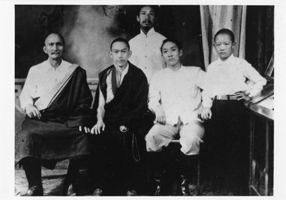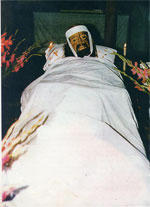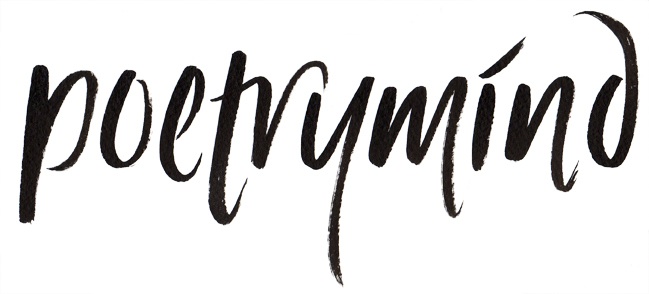
A Personal Tribute to Ven. Dr. Trogawa Rinpoche (1931- 2005)
I first met Dr. Trogawa in 1989 through the NY Shambhala Center which had invited him to teach for a week and see patients. Having recently moved to New York from Boulder, Colorado, I was asked to help coordinate his visit. On the eve of his arrival, the other coordinator unexpectedly had to travel to visit her dying father and I was left alone to coordinate his visit. I spent many weeks in his clinic helping out and cooking in a marathon of hard labor. Over the years, I saw him and here or there often spending time in his household, which tended to be at John Giorno’s wonderful loft on the Bowery in New York City. Poet, Allen Ginsberg was on his Chakpori board of directors along with Sir James George and other interesting people like John, and Shakya Dorje. Once, I spent a week in Boulder at the invitation of one of his students, Dr. Phil Weber, to cook for the doctor there. In addition to being a great lama and physician, I found him an interesting man in his observations about Western life with a subtle but wicked sense of humor. He had his quirks which always endeared me to him. One never knew what kind of odd ingredient he would request for his medicine preparations. He was my first real introduction to undiluted Tibetan culture. I will always hold him in high esteem.
A rarefied and aristocratic lama, I was impressed by Dr. Trogawa's uncompromising dedication to his vocation as a physician and the contrast of his sensitive nature in relation to the grittiness of dealing with so much human illness and suffering, Over the years, I observed him with hundreds of patients, many terminal. There is no doubt in my mind that he brought a healing presence to so many people, including myself. Although he was an incarnate lama, his path was different than most because his primary vocation was that of a physician. From morning to night he would see patients. He forwent many things by maintaining his own personal practice life in the midst of this kind of busy schedule. He worked really hard on behalf of others. Given his somewhat frail constitution, this always seemed so telling of his dedication. In this respect, he was something of a “Hidden” yogin—working by day, and practicing all the time. Like any great lama he was able to transmit the essence of the teachings with the slightest gesture, word or nuance of feeling. I consider him among my principle teachers—someone who
delivered me from grossest ignorance so that I could continue on the path.
Ven. Dr. Trogawa, Rinpoche was born in 1931 into a noble family in Thro Thralung, near Gyangtse, in the province of Tsang, in west-central Tibet. His father was an important officer in the Tibetan government. As child he was identified as the tulku of a Buddhist master and physician. Later, at the age of sixteen, he was sent to Lhasa to study medicine under the great physician Nyerongsha Rigzin Lhundrub Paljor who was a successor to the lineage of the Chagpori monastic school of medicine and a widely famed physician. He had at that time his own clinic, medicine production facility and apprenticeship program. Ven.Dr.Trogawa, Rinpoche studied with him for nine years, and became accomplished in all aspects of Tibetan Medicine becoming one of his master's principle successors. As an incarnate lama, he also studied and practiced the Buddhist path in depth during this time,
In 1957 Dr. Trogawa moved to Sikkim (then an Indian protectorate) in the company of the great Buddhist Master, Dzongsar Khyentse Chokyi Lodro. After his master's passing in 1961 he moved to Darjeeling, in the foothills of the eastern Himalayas, where he lived and practiced. After the fall of Tibet, he was one of the last masters free to teach and practice Tibetan Medicine. In 1963, he was appointed chief medical teacher at the Tibetan School of Medicine and Astrology, in Dharamsala, India, the institute directed by H.H.Dalai Lama. After some years at this school he left for health reasons, and then spent a number of years in retreat in the forests of Bhutan, periodically emerging to treat patients. He returned to Darjeeling in the 70's, where he lived and practiced until the present. Choegyal Namkhai Norbu invited him to the First International Conference on Tibetan Medicine at Merigar in 1983. Since that time, he taught at various conferences and dharma centers including the Dzogchen Community throughout the world. In 1994 he founded the Chagpori Institute of Tibetan Medicine to propagate his lineage of medicine. Dr.Trogawa. Rinpoche is considered one of the pre-eminent masters of Tibetan Medicine.*
Because of him, I believe in the efficacy of Tibetan medicine, its genius as an indigenous healing art infused with the noble view of Buddhism. He was a true manifestation of the medicine Buddha and the power of compassion as the basis for healing. With him there were no hopeless cases. With his passing, we have lost another link between old Tibet and the present. It was a great privilege to spend the time I did with him. So many memories flood my mind at this time—passing remarks, dreams, fragments of inner experiences in his midst, the simple elegance of his presence, and the subtly of his mind. I wish him well on his journey from this realm to another where no doubt he will continue his ministry to the suffering of beings
*biographical details were extracted from the website of Shakya Doirje at www.shakyadorje.org
Jacqueline Gens
May 15, 2005


